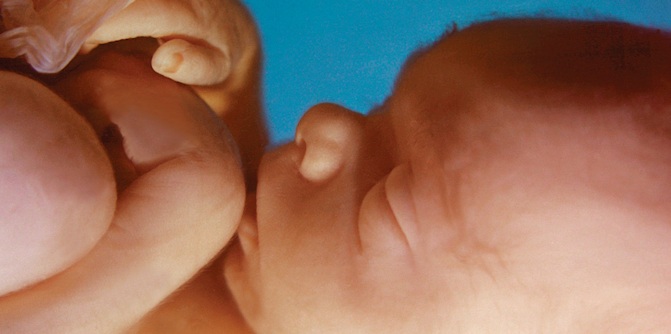A group of South Carolina lawmakers advanced a bill Wednesday that would recognize unborn babies as persons and potentially make abortions illegal in the state.
The Post and Courier reports a state Senate subcommittee passed the bill on Wednesday after a lengthy debate, and moved it forward to the full Senate Judiciary Committee for consideration.
Introduced by state Lt. Gov. Kevin Bryant while he was a Senator, the bill would recognize an unborn baby as person in state law, beginning at the moment of conception, WSPA News reports.
“This legislation directly underscores and recognizes those unalienable rights endowed by the Creator: the right to life, the right to liberty, and the right to the pursuit of happiness for the baby girl and the baby boy that have yet to be born,” Bryant testified in favor of the bill in March.
The newspaper reports the bill is highly unlikely to pass this year because of legislative deadlines, but it could be considered next year.
Here’s more from the report:
In an overcrowded committee room, supporters of the bill cited their religious beliefs, the Declaration of Independence and Thomas Jefferson to argue for the bill’s passage. Some compared abortions in the United States to the murder of Jewish people during the Holocaust.
Keep up with the latest pro-life news and information on Twitter. Follow @LifeNewsHQ
Opponents, in turn, argued the bill would outlaw all abortion procedures in South Carolina, including instances when a woman is raped or when a woman’s life is threatened by proceeding with a pregnancy.
A South Carolina Planned Parenthood spokesperson threatened to challenge the legislation in court.
Abortion groups have succeeded in overturning similar laws in court. In 2012, the Oklahoma Supreme Court struck down a similar personhood bill as unconstitutional because it recognized unborn babies as human beings who deserve the right to life.
Personhood legislation, even if upheld in court, may not make abortions illegal. When considering a Missouri statute in 1989, U.S. Supreme Court Chief Justice William Rehnquist ruled that the personhood statute was nothing more than a statement of position that had no bearing on banning abortions or even limiting them in any way.
The state of Missouri had approved a statute saying, “the life of each human being begins at conception” and “unborn children have protectable interests in life, health, and well-being.” The statute required that all Missouri state laws be interpreted to provide unborn children with rights equal to those enjoyed by other persons.
The United States District Court for the Western District of Missouri struck down that provision and the abortion limits, the United States Court of Appeals for the Eighth Circuit affirmed and ruled they violated Roe.
The Supreme Court then ruled that it did not need to consider the constitutionality of the law’s preamble, defining personhood at conception, as it could not be used to support any abortion laws that conflicted with Roe. Chief Justice William Rehnquist wrote the decision and Justice Anthony Kennedy joined in the opinion. Ultimately, the Supreme Court upheld the personhood language Missouri used decades ago but did not allow it to ban — or even limit — any abortions.
Therefore, most pro-life groups believe one of the keys to ending legalized abortion is overturning Roe v. Wade. The current Supreme Court justices are highly unlikely to do so, with conservative-leaning justices holding four of the nine seats.
President-elect Donald Trump promised to nominate “pro-life” justices to the high court, but he would need to nominate and the Senate would have to confirm several before there is a chance of Roe v. Wade being overturned.








